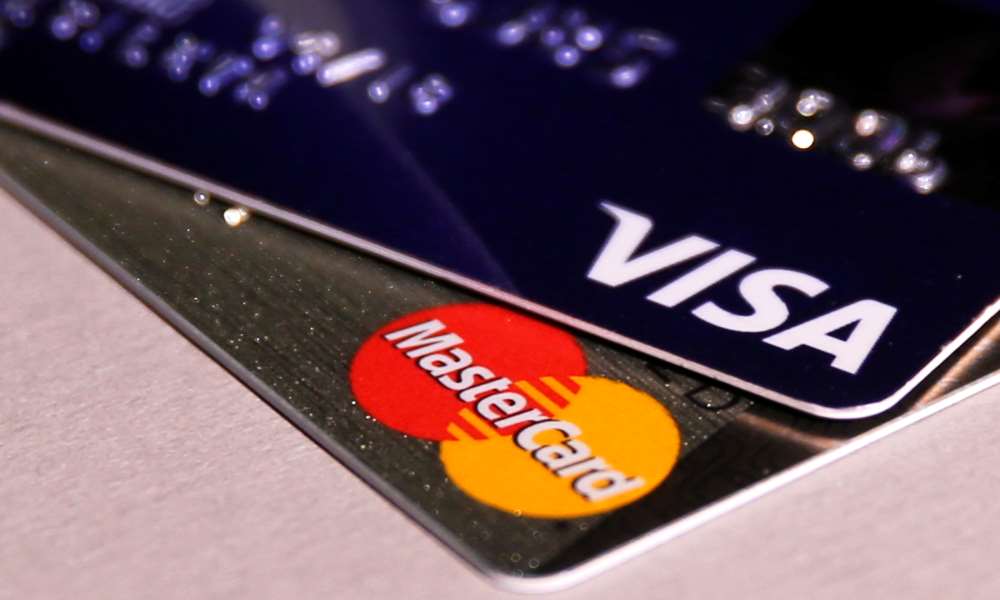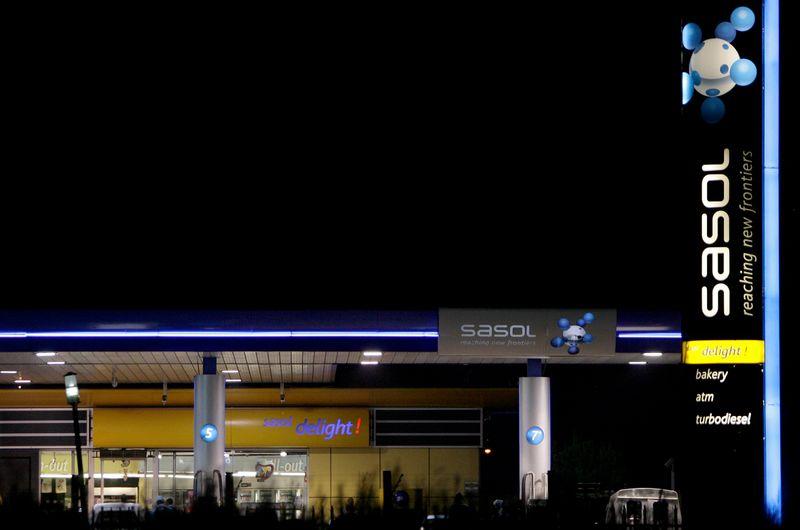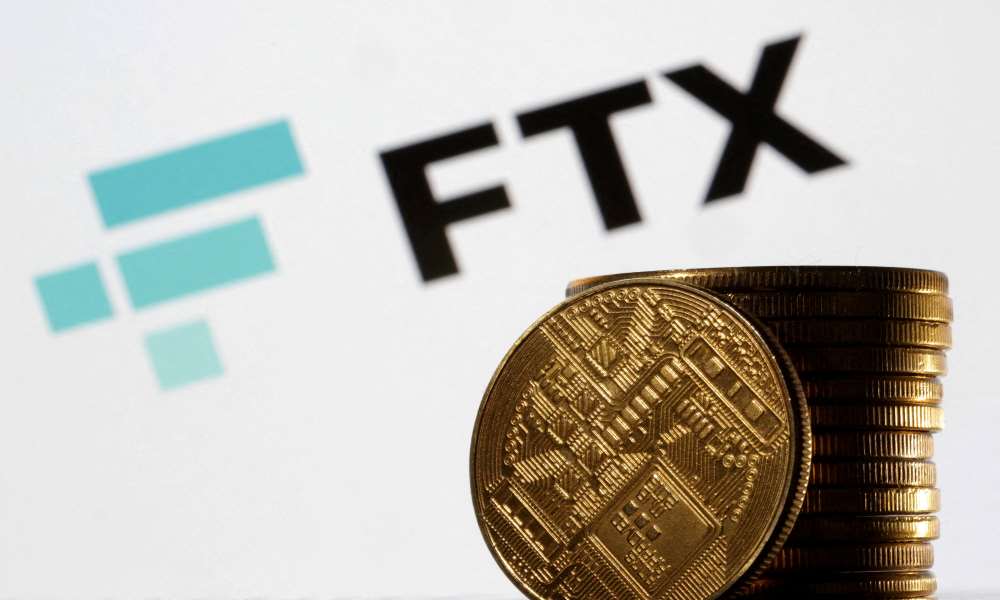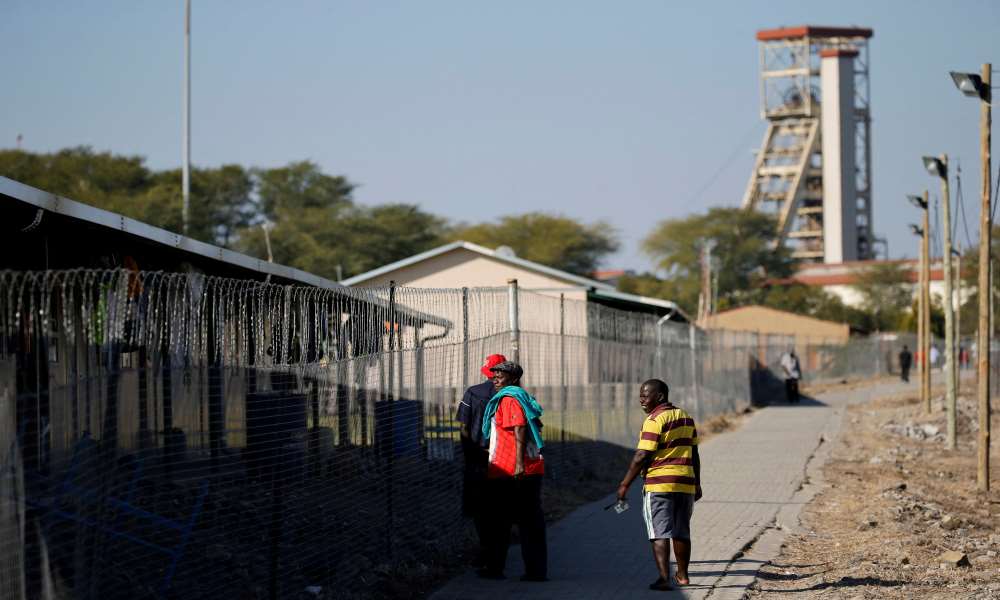COMPANY NEWS IN BRIEF
Sasol earnings to plunge as much as 84%
Sasol expects to report a massive dive in annual earnings as operational challenges, higher costs and volatile market conditions hit the synthetic fuels and chemicals producer.
The group expects to report a decline of between 74% and 84% in basic earnings per share for the year ended in June 2023. Earnings per share will be between R10.26 and R16.49, compared with R62.34 in 2022.
Core headline earnings per share are expected to be between R41.54 and R51.14, representing a decrease of between 25% to 39%. The company's share price was down over 5% by 9:30 on Monday morning.
Sasol said its results were impacted by a combination of operational challenges and a volatile global economic landscape which included weaker global economic growth, higher inflation, depressed chemicals prices and higher feedstock and energy costs.
"The softening of the Brent crude oil price and refining margins in the latter part of the 2023 financial year was offset by a weakening of the Rand/US Dollar exchange rate. Chemicals basket prices were on a declining trend during 2023, and while we have seen some respite in lower feedstock and energy prices, gross margin and global demand remains depressed particularly in our American and Eurasian operations," Sasol said in a trading statement.
The group said business performance was further impacted by the underperformance of state-owned enterprises in South Africa, which constrained its supply chains and resultant sales volumes.-Fin24
Northam earnings hit hard
Northam Platinum will report a decrease in annual basic earnings per share of between 70% and 80%, primarily as a result of a R4.1 billion non-cash impairment cost relating to its investment in Royal Bafokeng Platinum (RBPlat).
Northam last month announced it would sell to Impala Platinum its almost 35% stake in RBPlat, which it had acquired as part of a failed plan to eventually gain control of the company.
Northam had paid a premium for the shares but took the R4.1 billion hit in selling into Impala's lower offer price, which it extended to all RBPlat shareholders.
"The Implats mandatory offer, with a substantial cash underpin, presented a well-timed opportunity in the prevailing platinum group metals (PGM) market for Northam to secure a very significant cash injection that materially strengthens Northam's balance sheet and liquidity position," the company said in a trading statement published on Monday.
The Implats mandatory offer amounted to R90.00 in cash and 0.3 new ordinary shares in Implats. Northam therefore received, in aggregate, R9 billion in cash and 30 065 866 Implats shares.
Beyond the RBPlats impact, Northam's earnings were also impacted by a R2.7 billion non-cash impairment relating to the Eland operation as a result of a substantial deterioration in the pricing of PGMs, which will be reversed should market conditions improve in the future.-Fin24
Mastercard to buy stake in fintech business
MTN, Africa’s biggest wireless carrier, said Mastercard agreed to take a minority stake in its financial-technology business, which the company values at US$5.2 billion (R100 billion).
"Signing of the definitive investment agreements is expected to occur in the very near term," MTN Chief Executive Officer Ralph Mupita said in a statement on Monday.
Africa’s young, tech-savvy population are increasingly using their mobile phones to bridge gaps in services including banking. That’s opened a lucrative and fast-growing space in the fintech sector for wireless carriers. Much of the attention to date has been on mobile-payment systems, with a wave of fast-growing startups including Flutterwave Inc. and Interswitch emerging in the industry.
MTN rivals including Airtel Africa, Nairobi-based Safaricom and Vodacom are all at various stages of transforming from basic voice and text mobile use to digitalisation, with a broad aim of separating and monetizing the businesses in the longer term.
Airtel has already brought in Mastercard as an investor in its mobile-money unit. India’s Jio Platforms, the digital arm of billionaire Mukesh Ambani’s Reliance Industries, set an earlier precedent by attracting capital from Facebook and Silver Lake Partners in 2020.
MTN has said previously it plans to raise R25 billion from asset sales. Its most recent disposals include the sale and lease-back of its South African mobile-phone towers and a plan to sell some of its West African assets.-Fin24
Strong chrome prices help Eastplats
Junior miner Eastern Platinum (Eastplats) has reported a more than doubling of interim profit after receiving a boost from both increased third-party chrome sales as well as higher prices for the metal.
Vancouver-based Eastplats reported on Friday its headline earnings jumped to $9 million (almost R170 million) in the six months to end-June from $3.9 million previously. It was helped by increased sales as well as a climb in metal prices which JSE-listed mining peer Tharisa has said in part stems from SA's energy and rail dysfunction.
Eastplats, valued at about R287 million on the JSE as of Friday's open, has chrome and platinum group metal (PGM) assets in South Africa, but generates about 94% of its revenue from chrome.
The group, whose primary listing is in Toronto, with a secondary listing on the JSE, is engaged in re-mining and processing of tailings at the Crocodile River Mine in the North West. The miner said it continues to move towards a soft restart of the Zandfontein underground section of the mine, expecting the initial processing of ore to begin later this year.
Revenue increased 55% to $58.7 million (about R1.1 billion) to end-June, the company said, also noting in its report that it is in the process of considering and evaluating its rights under the various agreements with key off-taker Union Goal, and in late 2022, began making third-party sales at market prices.-Fin24
FTX founder Sam Bankman-Fried jailed
A US federal judge on Friday ordered FTX founder Sam Bankman-Fried back to prison less than two months before his trial on fraud charges, revoking the disgraced cryptocurrency tycoon's bail over alleged attempts to tamper with witnesses.
Bankman-Fried, 31, has pleaded not guilty to charges of wire fraud and conspiracy to commit money laundering, as well as election finance violations, in connection with the spectacular collapse of his crypto firm last year.
FTX and its sister trading house Alameda Research went bankrupt in November, dissolving a virtual trading business that at one point had been valued by the market at $32 billion (~R606.5 billion).
US District Judge Lewis Kaplan justified the revocation of bail by citing "probable cause... that the defendant has committed the federal crime of attempted witness tampering," the ruling said.
"There is no condition or combination of conditions of release that will assure that the defendant will not pose a danger to other persons or the safety of the community," the order said.
Prosecutors had argued to Kaplan that Bankman-Fried's activities as a source for The New York Times amounted to witness intimidation, citing an article containing the private writings of former Alameda CEO Caroline Ellison, his former girlfriend.-Fin24
Ramokgopa defends Eskom’s diesel habit
Electricity Minister Kgosientso Ramokgopa has defended Eskom's R12.4 billion diesel spend over the past four months, saying fuel needed to be burned to protect South Africa's economy.
"What we are sharing with you is nothing outside of what we had promised," the minister said at his regular Sunday briefing. "We did say that [burning diesel] is going to come at great cost to the fiscus."
Since the beginning of April, the power utility has spent R12.4 billion on either burning diesel at its peaking plants or buying electricity generated from independent producers using diesel.
It spent R9.2 billion on buying diesel to power its fleet of open-cycle gas turbines, and R3.2 billion on buying electricity generated by independent producers. The diesel spend was within budget, said Ramokgopa.
The minister said the power utility had planned three key interventions to keep load shedding as low as possible during winter: trying to make plants run better, reducing demand, and burning diesel.
"We are not surprised by these numbers. It was always part of our deliberate strategy to protect the SA economy," he said in reference to the R12.4 billion figure. –Fin24
Sasol expects to report a massive dive in annual earnings as operational challenges, higher costs and volatile market conditions hit the synthetic fuels and chemicals producer.
The group expects to report a decline of between 74% and 84% in basic earnings per share for the year ended in June 2023. Earnings per share will be between R10.26 and R16.49, compared with R62.34 in 2022.
Core headline earnings per share are expected to be between R41.54 and R51.14, representing a decrease of between 25% to 39%. The company's share price was down over 5% by 9:30 on Monday morning.
Sasol said its results were impacted by a combination of operational challenges and a volatile global economic landscape which included weaker global economic growth, higher inflation, depressed chemicals prices and higher feedstock and energy costs.
"The softening of the Brent crude oil price and refining margins in the latter part of the 2023 financial year was offset by a weakening of the Rand/US Dollar exchange rate. Chemicals basket prices were on a declining trend during 2023, and while we have seen some respite in lower feedstock and energy prices, gross margin and global demand remains depressed particularly in our American and Eurasian operations," Sasol said in a trading statement.
The group said business performance was further impacted by the underperformance of state-owned enterprises in South Africa, which constrained its supply chains and resultant sales volumes.-Fin24
Northam earnings hit hard
Northam Platinum will report a decrease in annual basic earnings per share of between 70% and 80%, primarily as a result of a R4.1 billion non-cash impairment cost relating to its investment in Royal Bafokeng Platinum (RBPlat).
Northam last month announced it would sell to Impala Platinum its almost 35% stake in RBPlat, which it had acquired as part of a failed plan to eventually gain control of the company.
Northam had paid a premium for the shares but took the R4.1 billion hit in selling into Impala's lower offer price, which it extended to all RBPlat shareholders.
"The Implats mandatory offer, with a substantial cash underpin, presented a well-timed opportunity in the prevailing platinum group metals (PGM) market for Northam to secure a very significant cash injection that materially strengthens Northam's balance sheet and liquidity position," the company said in a trading statement published on Monday.
The Implats mandatory offer amounted to R90.00 in cash and 0.3 new ordinary shares in Implats. Northam therefore received, in aggregate, R9 billion in cash and 30 065 866 Implats shares.
Beyond the RBPlats impact, Northam's earnings were also impacted by a R2.7 billion non-cash impairment relating to the Eland operation as a result of a substantial deterioration in the pricing of PGMs, which will be reversed should market conditions improve in the future.-Fin24
Mastercard to buy stake in fintech business
MTN, Africa’s biggest wireless carrier, said Mastercard agreed to take a minority stake in its financial-technology business, which the company values at US$5.2 billion (R100 billion).
"Signing of the definitive investment agreements is expected to occur in the very near term," MTN Chief Executive Officer Ralph Mupita said in a statement on Monday.
Africa’s young, tech-savvy population are increasingly using their mobile phones to bridge gaps in services including banking. That’s opened a lucrative and fast-growing space in the fintech sector for wireless carriers. Much of the attention to date has been on mobile-payment systems, with a wave of fast-growing startups including Flutterwave Inc. and Interswitch emerging in the industry.
MTN rivals including Airtel Africa, Nairobi-based Safaricom and Vodacom are all at various stages of transforming from basic voice and text mobile use to digitalisation, with a broad aim of separating and monetizing the businesses in the longer term.
Airtel has already brought in Mastercard as an investor in its mobile-money unit. India’s Jio Platforms, the digital arm of billionaire Mukesh Ambani’s Reliance Industries, set an earlier precedent by attracting capital from Facebook and Silver Lake Partners in 2020.
MTN has said previously it plans to raise R25 billion from asset sales. Its most recent disposals include the sale and lease-back of its South African mobile-phone towers and a plan to sell some of its West African assets.-Fin24
Strong chrome prices help Eastplats
Junior miner Eastern Platinum (Eastplats) has reported a more than doubling of interim profit after receiving a boost from both increased third-party chrome sales as well as higher prices for the metal.
Vancouver-based Eastplats reported on Friday its headline earnings jumped to $9 million (almost R170 million) in the six months to end-June from $3.9 million previously. It was helped by increased sales as well as a climb in metal prices which JSE-listed mining peer Tharisa has said in part stems from SA's energy and rail dysfunction.
Eastplats, valued at about R287 million on the JSE as of Friday's open, has chrome and platinum group metal (PGM) assets in South Africa, but generates about 94% of its revenue from chrome.
The group, whose primary listing is in Toronto, with a secondary listing on the JSE, is engaged in re-mining and processing of tailings at the Crocodile River Mine in the North West. The miner said it continues to move towards a soft restart of the Zandfontein underground section of the mine, expecting the initial processing of ore to begin later this year.
Revenue increased 55% to $58.7 million (about R1.1 billion) to end-June, the company said, also noting in its report that it is in the process of considering and evaluating its rights under the various agreements with key off-taker Union Goal, and in late 2022, began making third-party sales at market prices.-Fin24
FTX founder Sam Bankman-Fried jailed
A US federal judge on Friday ordered FTX founder Sam Bankman-Fried back to prison less than two months before his trial on fraud charges, revoking the disgraced cryptocurrency tycoon's bail over alleged attempts to tamper with witnesses.
Bankman-Fried, 31, has pleaded not guilty to charges of wire fraud and conspiracy to commit money laundering, as well as election finance violations, in connection with the spectacular collapse of his crypto firm last year.
FTX and its sister trading house Alameda Research went bankrupt in November, dissolving a virtual trading business that at one point had been valued by the market at $32 billion (~R606.5 billion).
US District Judge Lewis Kaplan justified the revocation of bail by citing "probable cause... that the defendant has committed the federal crime of attempted witness tampering," the ruling said.
"There is no condition or combination of conditions of release that will assure that the defendant will not pose a danger to other persons or the safety of the community," the order said.
Prosecutors had argued to Kaplan that Bankman-Fried's activities as a source for The New York Times amounted to witness intimidation, citing an article containing the private writings of former Alameda CEO Caroline Ellison, his former girlfriend.-Fin24
Ramokgopa defends Eskom’s diesel habit
Electricity Minister Kgosientso Ramokgopa has defended Eskom's R12.4 billion diesel spend over the past four months, saying fuel needed to be burned to protect South Africa's economy.
"What we are sharing with you is nothing outside of what we had promised," the minister said at his regular Sunday briefing. "We did say that [burning diesel] is going to come at great cost to the fiscus."
Since the beginning of April, the power utility has spent R12.4 billion on either burning diesel at its peaking plants or buying electricity generated from independent producers using diesel.
It spent R9.2 billion on buying diesel to power its fleet of open-cycle gas turbines, and R3.2 billion on buying electricity generated by independent producers. The diesel spend was within budget, said Ramokgopa.
The minister said the power utility had planned three key interventions to keep load shedding as low as possible during winter: trying to make plants run better, reducing demand, and burning diesel.
"We are not surprised by these numbers. It was always part of our deliberate strategy to protect the SA economy," he said in reference to the R12.4 billion figure. –Fin24








Comments
Namibian Sun
No comments have been left on this article